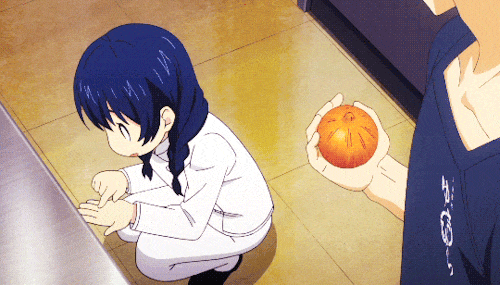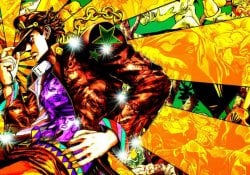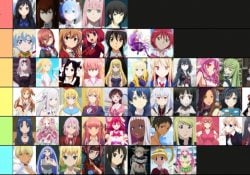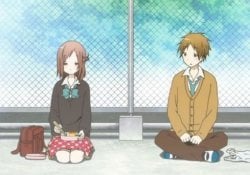In this article we will study in depth the kanji ideogram of person which in Japanese is [人]. You will learn not only how to say person in Japanese, but several related words.
The kanji hito [人] is one of the easiest and one of the first kanji we learn when studying Japanese. Its meaning is simple and direct, it basically referred to a person. Its main pronunciation “hito” [ひと] can be literally translated to person.
Índice de Conteúdo
Meanings of HITO [人]
Like any ideogram in the Japanese language, its design tries to convey an idea and essence, and in the case of the ideogram [人], we were able to idealize a person with two legs.
See below for other readings of the Person Ideogram:
Kun yomi: to[-と] / hito[ひと] / ri[-り];
On yomi: jin[ジン] / nin[ニン];
Namess: [じ] [と] [ね] [ひこ] [ふみ]
The meaning of Hito [人] clearly means person, but depending on the context or word, it can mean in the plural, humanity, human being, personality, talented person, real man, and adult. (Of course, there are specific words to express these meanings.)
We also recommend reading:
- How to know if the Kanji reading is ON or KUN?
- Pictographic Kanji – Ideograms and Pictograms
- How to Discover Kanji or Ideogram?
Defining People by Location
With this Kanji it is possible to define the nationality of any person or assign a name to an occupation. In Japanese, you may have already noticed that to refer to a person of a certain nationality or place, we use the name of the country, or locality + jin [人]:
- Brazilians ブラジル人 (Burajiru-jin)
- Japanese 日本人 (Nihon-jin)
- Romans ローマ人 (Roma-jin)
- Americans アメリカン人 (Amerikan-jin)
- Goiano ゴイアス人 (Goiasu-jin)
- Paulista サンパウロ人 (Sanpauro-jin)
Using Person Kanji [人] to Count
We use the kanji [人] to count people. For example:
- 一人 - Hitori - 1 Person
- 二人- Futari - 2 People
- 三人- San'nin - 3 People
- 四人- Yonin
- 五人- Gonin
- 六人- Rokunin
- 七人- Nananin
- 八人- hachinin
- 九人- Kyunin
- 十人- Juunin
The article is still halfway through, but we recommend also reading:
Compound words with kanji [人]
If we were to talk about all the words and using the kanji [人] would take days, below you will find some common words that use the kanji 人.
- Bijin [美人] - Beautiful Woman
- Ningen [人間] - Human, humanity
- Yojin [余人] - Other people
- Uchuujin [宇宙人] - Spaceman, Alien
- Ninki [人気] - Famous person;
- Oijin [名人] - Specialist
- Chijin [知人] - Friend, acquaintance
There are more than 2500 Words that use the kanji [人], not to mention the times [人] appears as radical in some word.
Words with Multiple Pronunciations
There are also words that use the ideogram of person, but when pronounced differently, it totally changes its meaning. See a list of these words below:
- [歌人] – かじん = Poet / うたびと = Skilled Poet, Official in charge of Poetry and Music in the Ritsuryo period;家人 – かにん = Family, member / けにん = Retainer
- [死人] – しにん or しびと = Both mean: corpse; dead person
- [中人] – ちゅうじん = Person of average talent or strength, person of average class. / ちゅうにん = Child in elementary or high school.
Equal Words with Person Kanji
Be careful not to get confused with the same words, this is very common in Japanese. Pay close attention to the kanji and stop focusing only on the pronunciation of words.
Kajin [かじん] - Both words below are pronounced "kajin", however see the difference in Kanji, and the meaning of each word.
- 佳人 - Beauty, Beautiful Woman
- 寡人 - Humble Person
- 画人 - Artist Painter
- 雅人 - Taste, personal standard
- 歌人 - Poet
- 家人 - The Family, someone from the family;
Words with exceptions
There are many words with an unusual reading of their kanji, which does not use either ON or KUN, but uses its own or derived reading. That is, words that do not use TO, RI, NIN, JIN, HITO. See some examples:
- Loves [海人] - Diver or Fisherman
- Otona [大人] - Adult
After a search, I was only able to find these 2 irregular words with kanji 人. It is also worth mentioning here that there are words that convert their pronunciation to dakuten (た=だ, か=が ). This is not an irregular word, it's just to make the pronunciation easier and more beautiful. Like, for example, the word goddess (女神) which should be mekami but is said megami. With kanji [人] there are many words like this, see:
- Ochiudo [落人] - Running away. (Soldier fleeing from the enemy.) (To pronounced Do)
- Kuriyabito [厨人] - Chef (Hito pronounced Bito)
- Kemonobito [獣人] - Human-animal fusion, beast. (Hito = Bito)
- Akiudo [商人] - Merchant, Trader, Shopkeeper.
- Koibito [恋人] - Lovers, Boyfriends (Hito = Bito)
Sometimes there is another way to pronounce these words that is not wrong. In fact, using the original form without pronouncing using dakuten is not wrong. However, if everyone speaks in a certain way, you may confuse the person during a conversation if you don't speak the way it's taught.
This was a simple attempt to teach a little bit about the kanji hito [人]. I hope you enjoyed this article and share it with your friends. Finally, here are some exercises:
- practice writing
- Record all On and Kun readings
- See all words that use 人 find the most important ones. (Click here)
- Comment on something that was missing in this article, which you think is extremely important to mention;
Finally, I'll leave you a short video:







